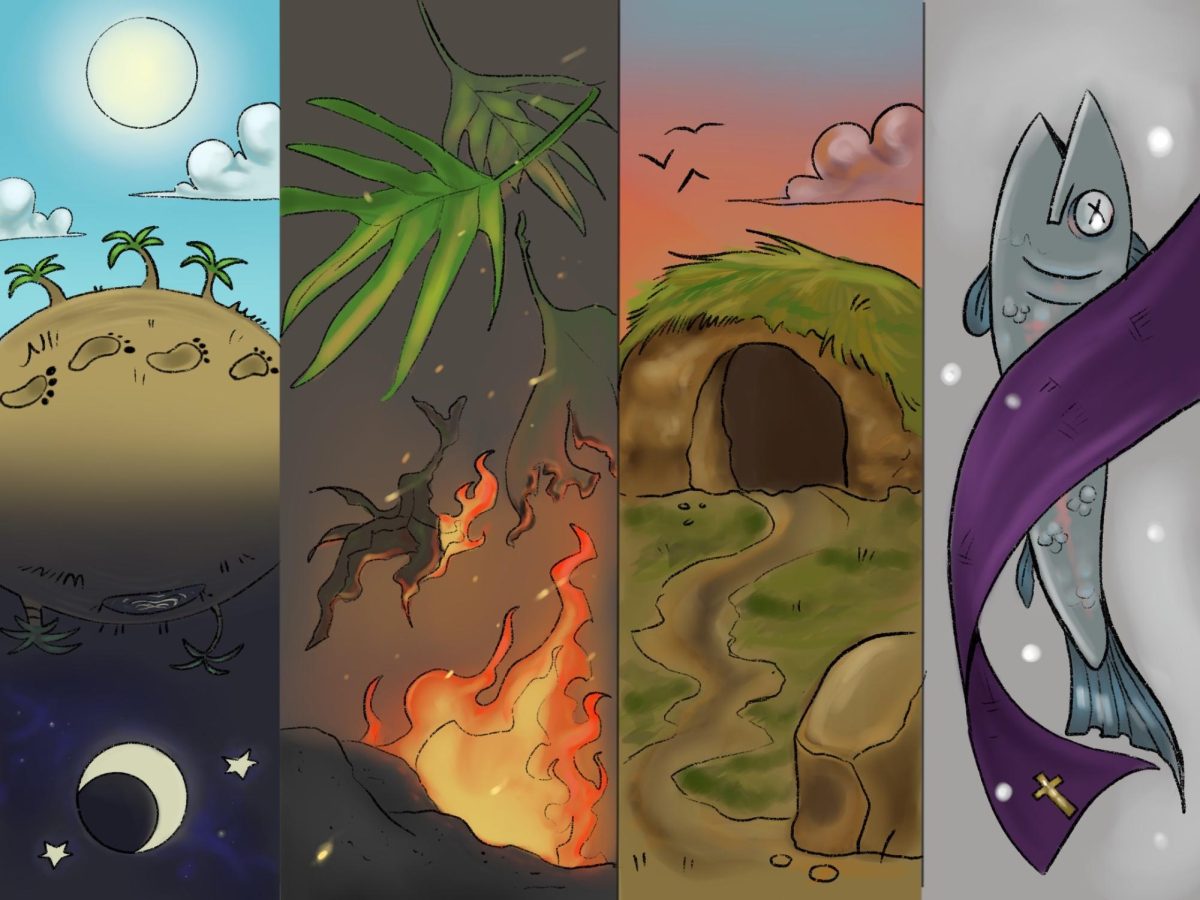In lieu of Usher’s halftime performance and Travis Kelce’s temper tantrum, this year’s Superbowl presented the public with yet another year of less than logical ads. From the ever-present Ford F1-50 commercials to grandma’s fighting over Doritos, this Superbowl had it all- including religious endorsements.
In tandem with a perplexing ad about the significance of Jesus washing feet, the general public was blessed with a second religious ad featuring Mark Wahlberg, where he reminded the audience that it’s time to celebrate Lent.
But what is Lent, and why is it important?
Lent is the 40 day period between Ash Wednesday and Holy Thursday (two preceding holidays before Easter) that entail giving up certain foods (most meats excluding fish), habits, or pleasures to test a sense of self discipline, which can sometimes last up until Easter Sunday. This tradition is representative of the fasting and praying period that biblical figure Jesus Christ endured in the desert for 40 days.
However, the concept of fasting and praying for 40 days is not exclusive to Christ, as other religious figures including Moses and Elijah also fasted and connected with God throughout the course of 40 days.
Within the Lenten season, there are quite a few other holidays to observe that lead up to it’s eventual ending on Easter Sunday.
The first two would be Shrove Monday and Shrove Tuesday, or more commonly known as Carnival in Latin America. These two days mark the end of the pre-Lent period, and are days where people can indulge in the pleasures they plan to give up during Lent.
After the Shrove days comes the more well-known Ash Wednesday. On Ash Wednesday, the season of Lent officially begins, and those of Christian denominations will head to church to participate in the tradition of getting a cross of ash marked on their foreheads. This marking often serves as a symbol for morality, and ties into the saying “Remember you are dust, and to dust you shall return.”
The ashes for Ash Wednesday are gathered from the burning of palm leaves of the previous year’s Palm Sunday, since those palms are considered to be blessed.
Coincidentally, Palm Sunday is the next Lenten holiday celebrated after Ash Wednesday. Palm Sunday is the last Sunday before Easter and marks the beginning of Holy Week, or the final stretch of Lent. This day is meant to commemorate the arrival of Jesus to Jerusalem after his 40 days of fasting, during which he was greeted by people waving and laying down palm leaves to welcome him.
Like most religious holidays, church services are held in honor of the significance of Palm Sunday. During the services, readings of the Passion and the procession of the palms are customary, with congregation members taking palm leaves home to serve as “sacramentals,” or symbols of the sacraments. As previously mentioned, the palm leaves that don’t get taken home are burned and preserved to use for next year’s Ash Wednesday.
After Palm Sunday, the next significant day of Holy Week is Maundy Thursday, or Holy Thursday. This day marks the official end of Lent, however it serves a much more significant purpose. On Maundy Thursday, Jesus and his disciples celebrate the famous “Last Supper,” where Jesus washes their feet and commands for the disciples to love one another before his imminent arrest and crucifixion.
Following Maundy Thursday is the infamous Good Friday, which there really is nothing inherently “good” about on the surface. On this day, Jesus is forced to carry the cross, which he will later be crucified on after he faces torture from the Romans. The reason for his unfortunate fate rests upon the idea that he died for the sins of humanity, so that qualifies the overall sad nature of the day to be called Good Friday.
Finally, the Lenten season ends with the joyous events of Easter Sunday. This day consists of Jesus’ resurrection, which can be interpreted as the overall defeat of sin. Usually, people attend mass or other church services to celebrate, however other traditions such as Easter egg hunts and the Easter Bunny’s visits have become a part of the day as well.
With that said, the Lenten season sure is lengthy, however there is an interesting history that goes along with it. So this Lent, take a moment to acknowledge its history, and in the immortal words of Mark Wahlberg, “Stay prayed up.”











![The GHS/MERHS senior cross country runners pose together on Senior Night. [Photo courtesy of Manchester-Essex Athletics]](https://thegillnetter.com/wp-content/uploads/2025/10/Screenshot-2025-10-10-at-11.18.29-AM.png)



















